20 Reasons Not to Put In a Backyard Pool
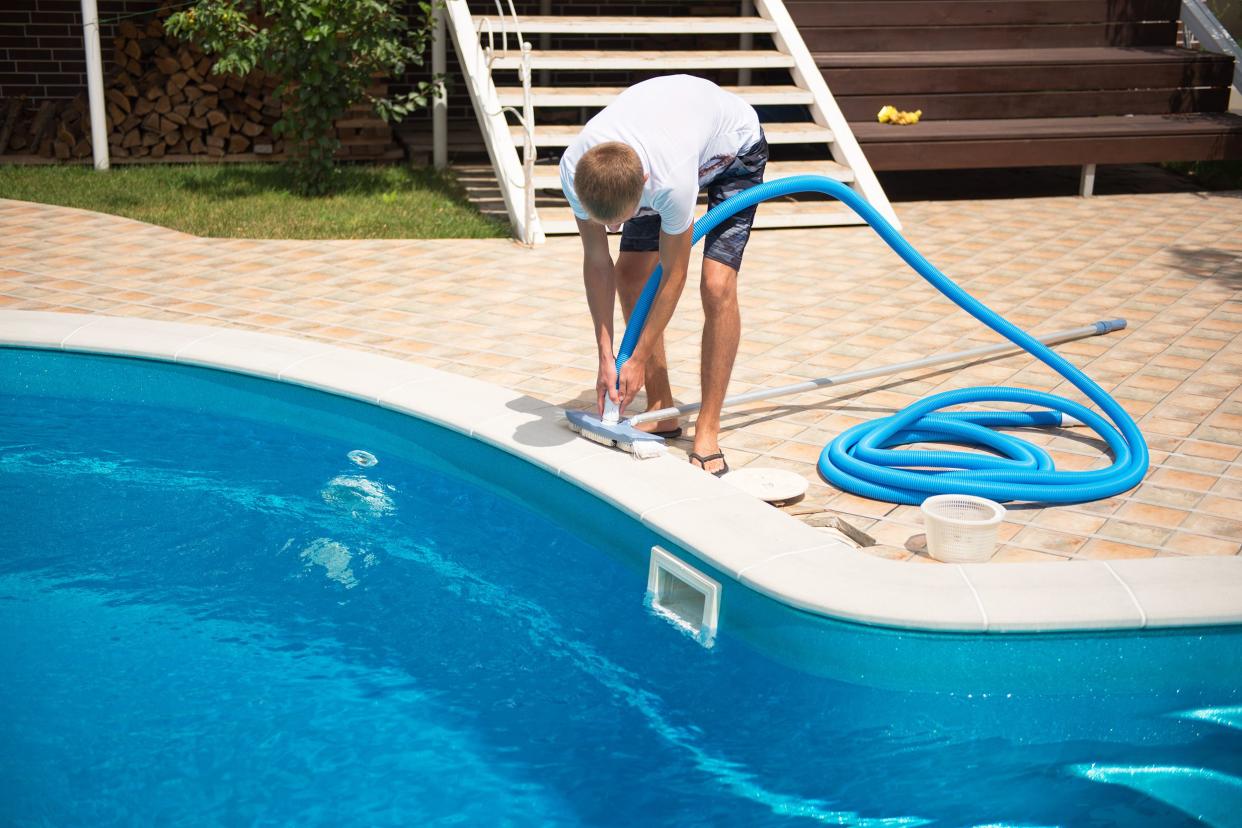
Wave Goodbye
Backyard pools seem like an ultra-convenient way to cool off and welcome friends — certainly less of a schlep than going to the beach or to a community pool. Think twice, though: Despite all their warm-weather appeal, pools have some serious downsides that may not be readily apparent when the temperature (and pool temptations) are high. Here are reasons to reconsider getting a pool at home.
Related: 5 Projects That Boost Home Value — and 5 Cheap Alternatives
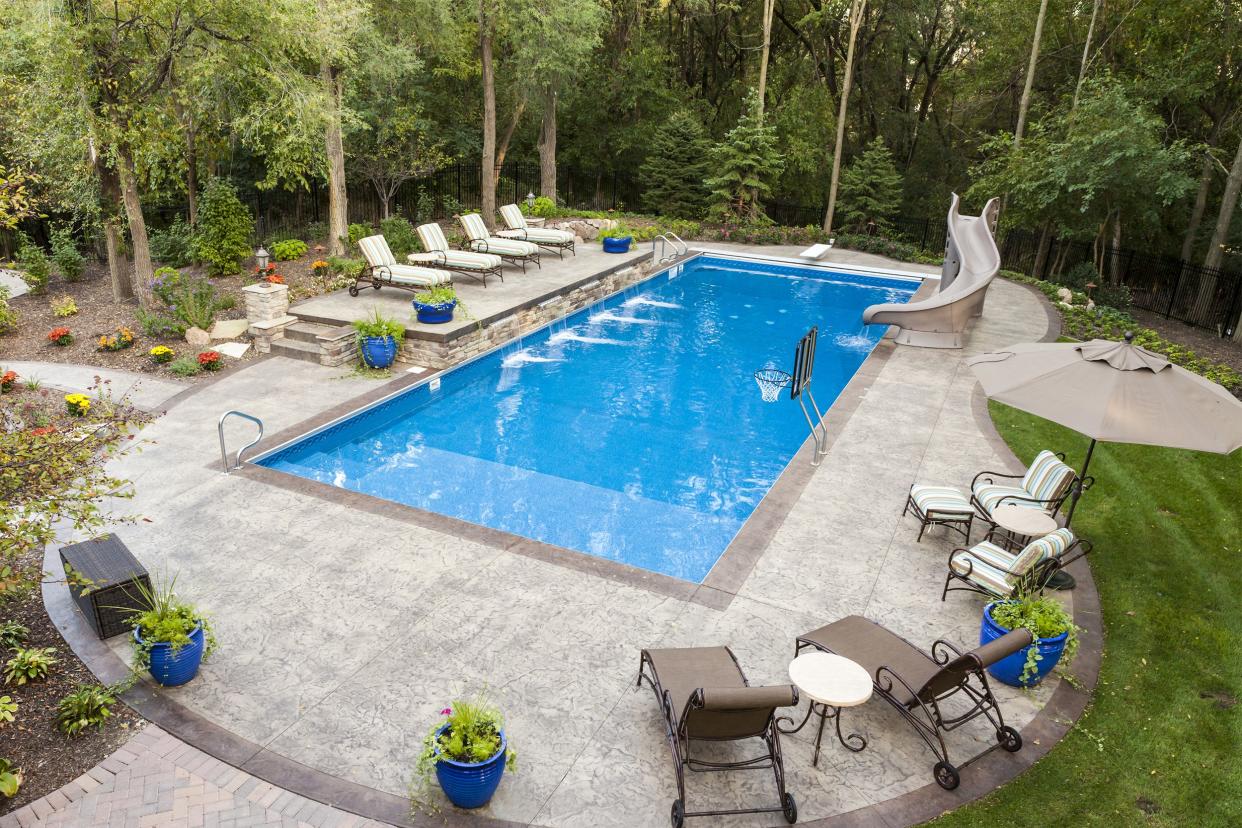
It's Expensive to Install
The most obvious reason to forgo a pool? Big-time sticker shock. Installing an in-ground pool costs more than $55,091 on average, according to HomeAdvisor. An above-ground pool is significantly less expensive, clocking in anywhere from $800 to $4,500 to install and around $5,000 to build — still not chump change for most homeowners.
Related: Long-Term Steps to Reduce Your Living Expenses and Save Money
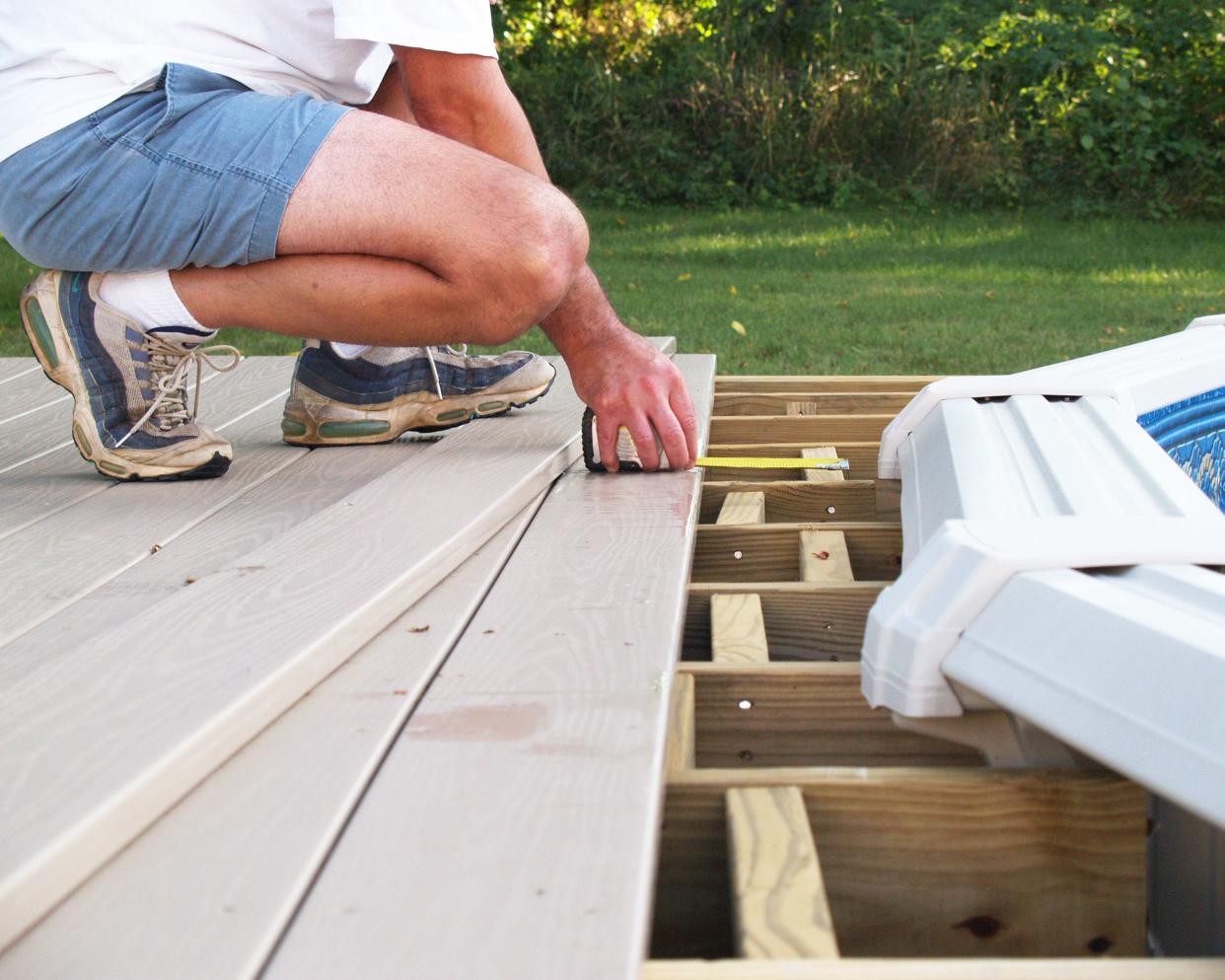
There Are Other Hidden Costs
The pool is expensive enough, but the quote may not include related costs: Will a retaining wall or other costly landscaping be needed? Will there be a deck for an above-ground pool, or a concrete patio for an in-ground pool? What about fancy lighting? And don't forget all those fun accessories: diving boards, slides, pool floats — they add up.
Related: Products That Can Turn Your Backyard Into a Relaxing Oasis
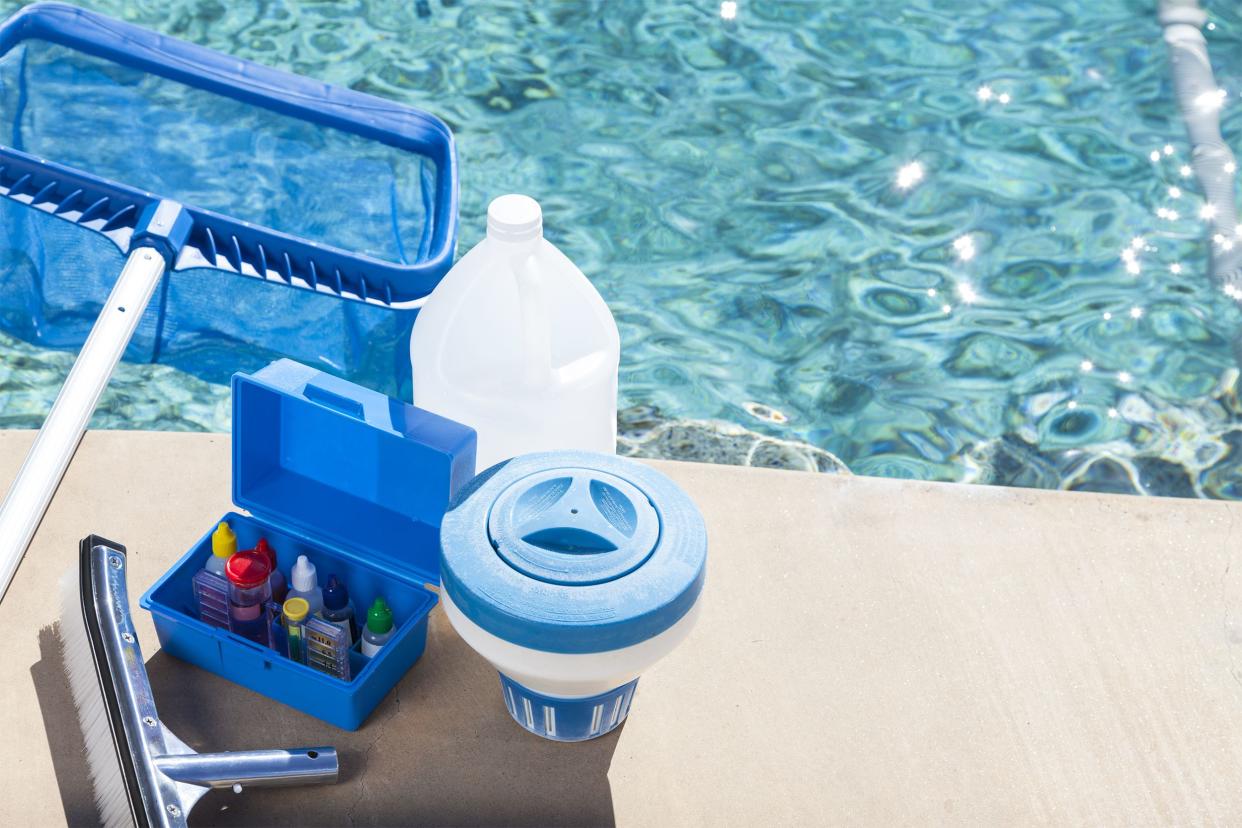
It's Pricey to Maintain ...
The expenses don't end once installation is over. HomeAdvisor estimates an average $115 a month going to pool maintenance, though that figure is skewed by pool owners who use professional services. Still, DIY maintenance isn't cheap, either: You'll have to pony up for supplies including a skimmer, chlorine, a pH kit, a pool vacuum, filters, and a quality pool cover, ranging from $30 to upward of $10,000 for a mechanical model.
Related: Make Oodles With Noodles: Uses for Pool Noodles
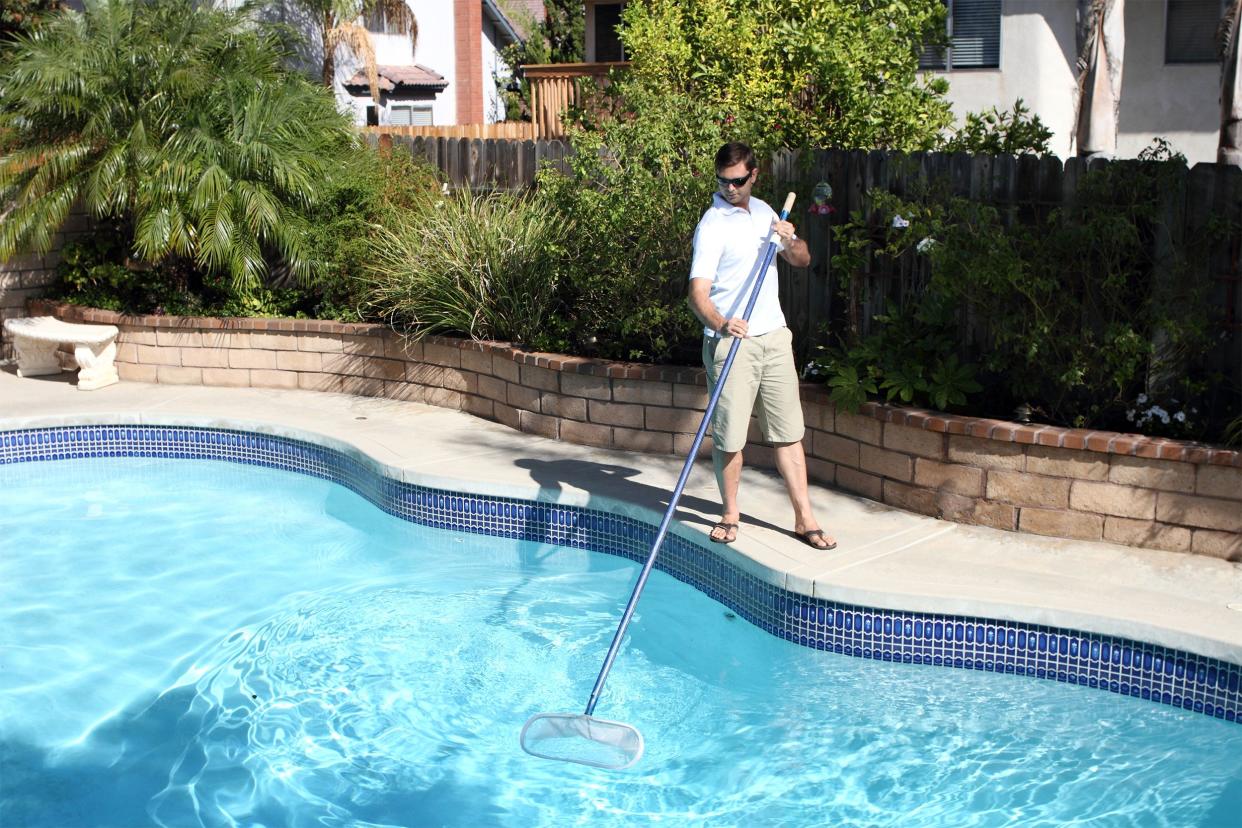
... and Time-Consuming, Too
Do-it-yourselfers should remember that they may save on labor costs, but are still paying with their time. A pool owner can spend five to 10 hours a week maintaining a pool with skimming debris, making sure pool chemicals are in balance, and so on, according to a Money Crashers article.
Related: Household Tasks That Burn Major Calories
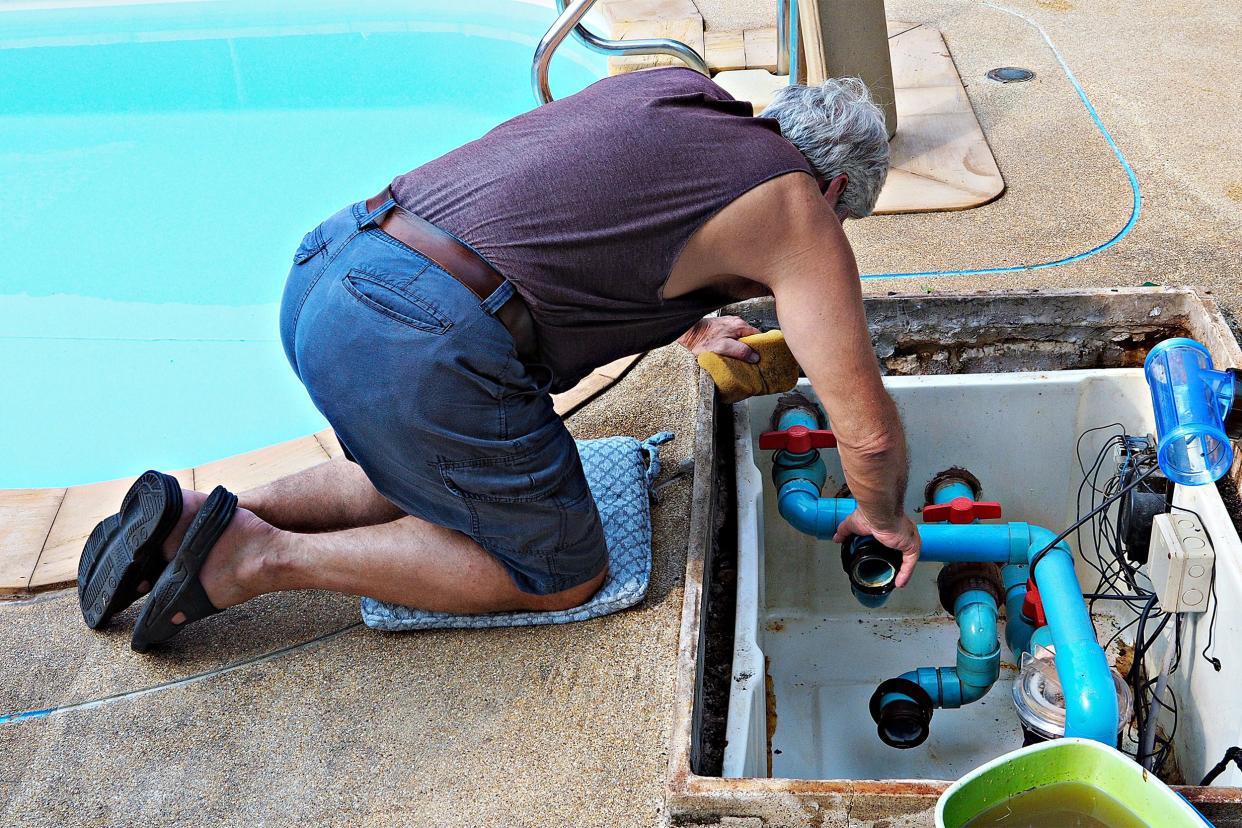
Repairs Are Costly
One-time pool repairs outside a maintenance budget can be a real wallet-buster, experts tell Angi, formerly known as Angie's List. A busted pool pump motor can be around $350, and around $800 to replace. Resurfacing a leaking pool starts around $6,000, while replacing a vinyl lining starts around $3,000. A new pool filter may cost around $600.
Related: Repairs to Leave to the Pros
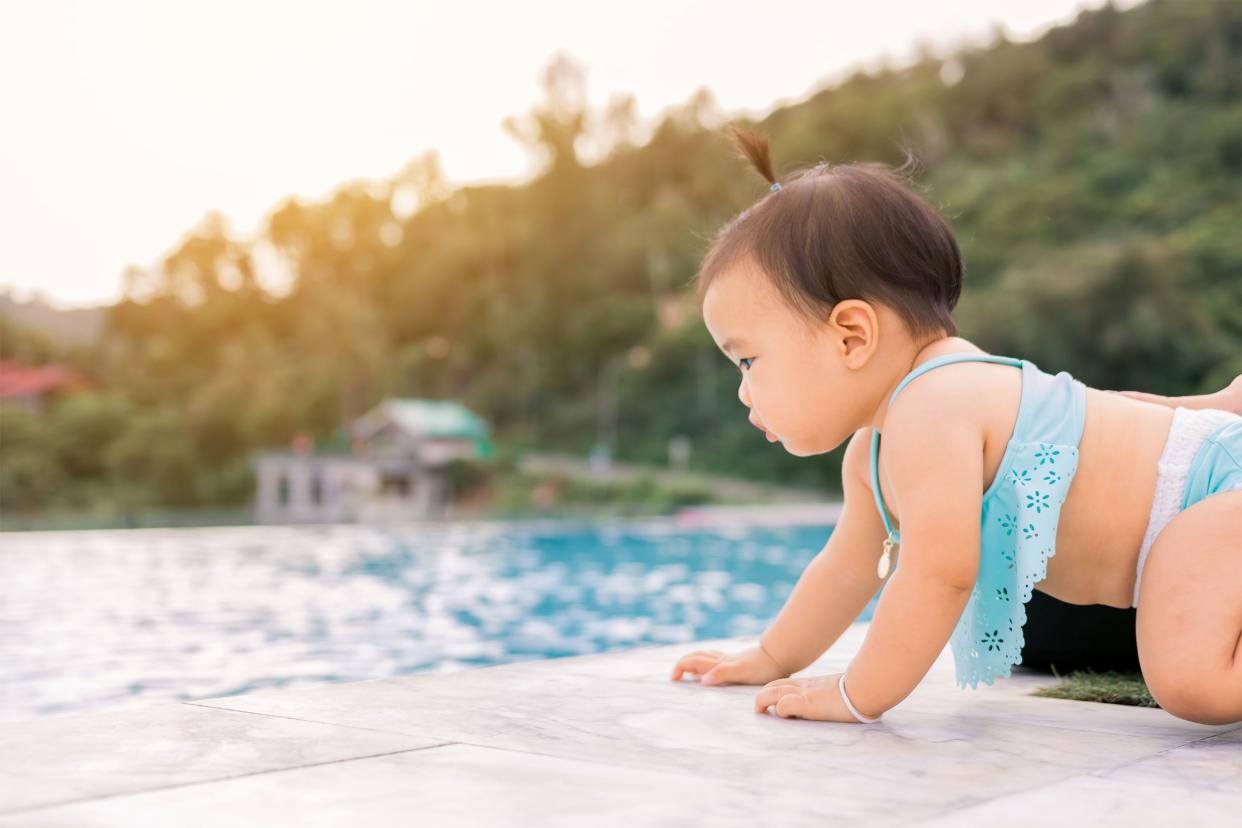
Pools Pose a Safety Risk ...
Roughly 10 people a day died after drowning in non-boating accidents from 2005 to 2014, according to the Centers for Disease Control and Prevention. The highest rates are for children ages 1 to 4, and most of those young victims drowned in backyard pools. Educate yourself on how to enjoy summer safely. Even pets are at risk, from drowning or lapping up chemical-laden pool water.
Related: Water-Safety Tips That Could Save You From a Swimming Disaster
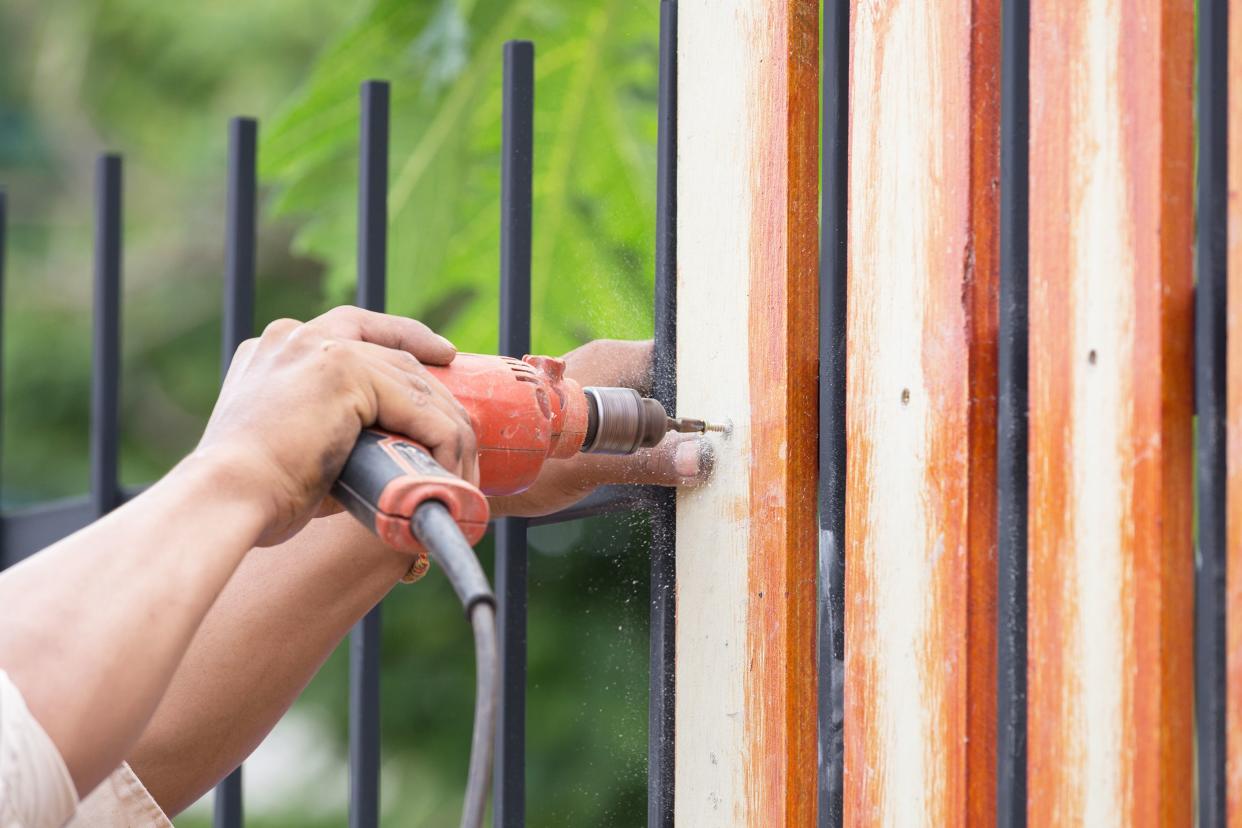
... But Keeping Them Safe Is Expensive
Many cities and counties won't allow a pool to be installed unless it's fenced in. Home insurers may also require it. But pool fences start at well over $1,000, and parents of young kids should also seriously consider a pool alarm that will sound if someone enters the pool or opens a pool gate when they shouldn't. These start around $45 on Amazon and top out around $500.
For more handy home-care tips, please sign up for our free newsletters.
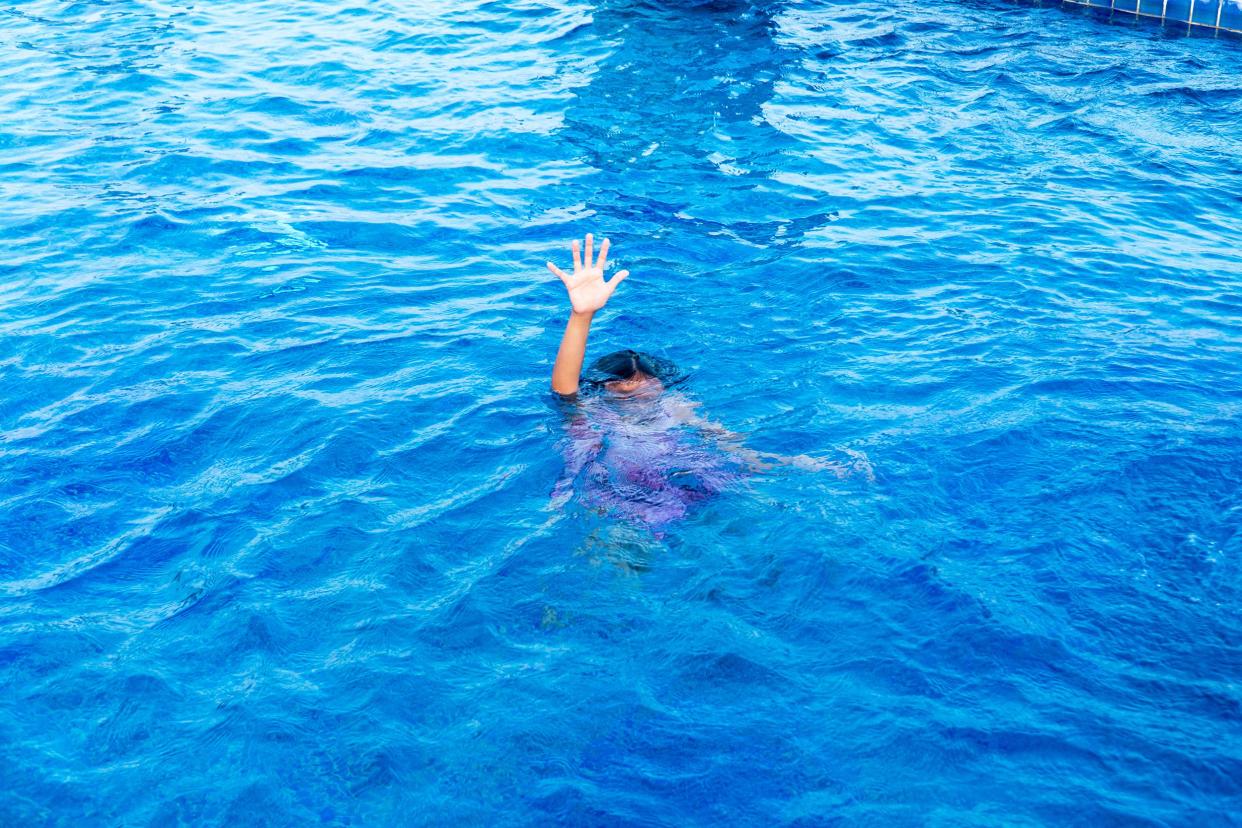
You'll Need More Liability Insurance ...
Pools are an "attractive nuisance," meaning possible liability if your pool causes an injury or death. The Insurance Information Institute cautions that pool owners should have at least $300,000 to $500,000 of liability coverage, or even consider an umbrella policy providing $1 million in protection, which could mean roughly $300 a year more in premiums.
Related: Tips to Keep You From Buying Too Much Insurance
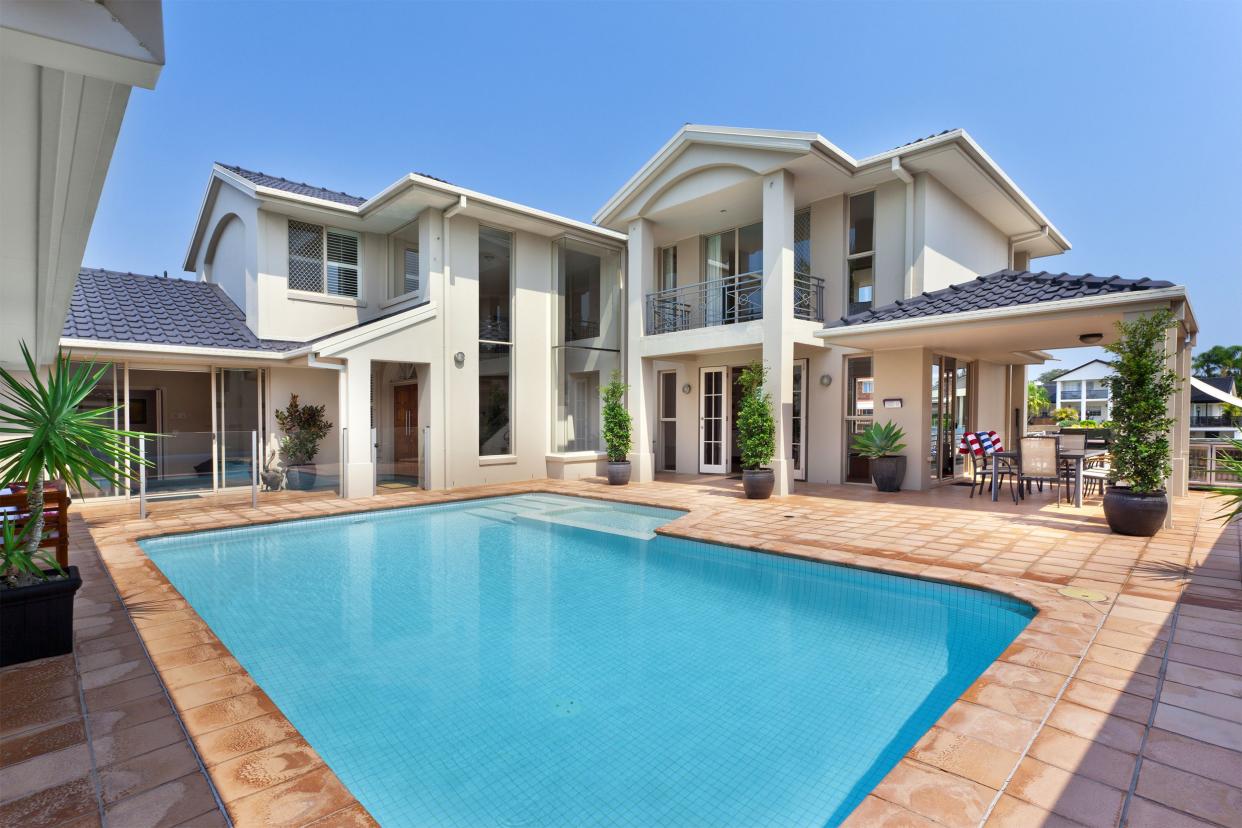
... And Structural Insurance, Too
An in-ground pool is an investment, so don't forget to protect it by increasing your "other structures" coverage, Insurance.com warns. Most policies include this coverage up to 10 percent of a home's value — if that's not enough, each additional $1,000 in coverage may bump up a premium about $5. Above-ground pools may fall under personal property coverage, but make sure there are no pool-specific claim limits.

Pools Are Polarizing ...
Who wouldn't want a pool? Surely it will make the house an easy sell, you may think. Not so fast, real estate agents warn. While there are some people who find a pool appealing, other would-be buyers won't want the headaches that come with it, especially if they have small kids. Getting rid of a pool isn't exactly cheap, either: It could take $10,000 or more to make a typical in-ground pool disappear.
Related: Things to Consider When Buying a House After 50
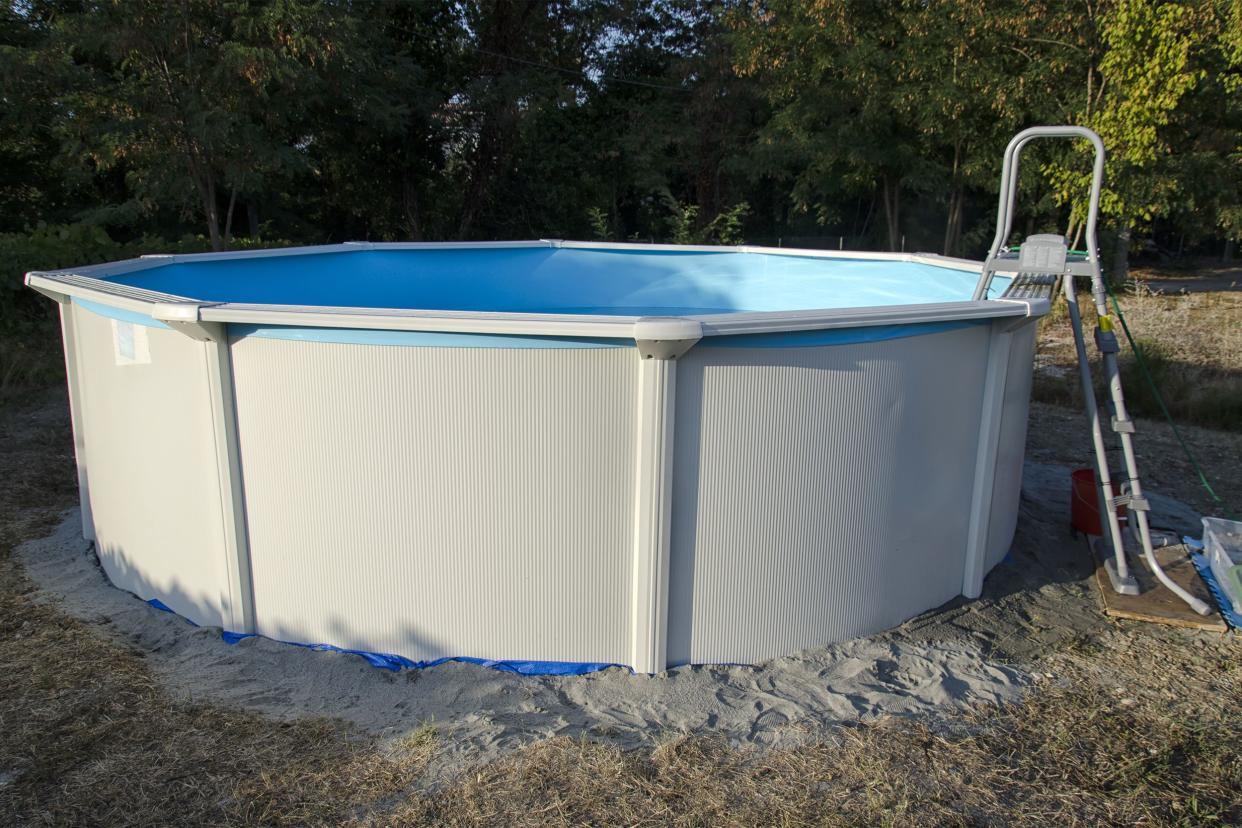
... And You Won't Get All the Money Back
Pools are not kitchens: Spending big on one doesn't mean getting the money back when it's time to sell. Half the investment might be recouped on an in-ground pool, but only in very warm climates that boast good swimming weather most of the year, Money Crashers says. An above-ground pool may even cost money when it's time to sell, as many buyers consider them an eyesore.
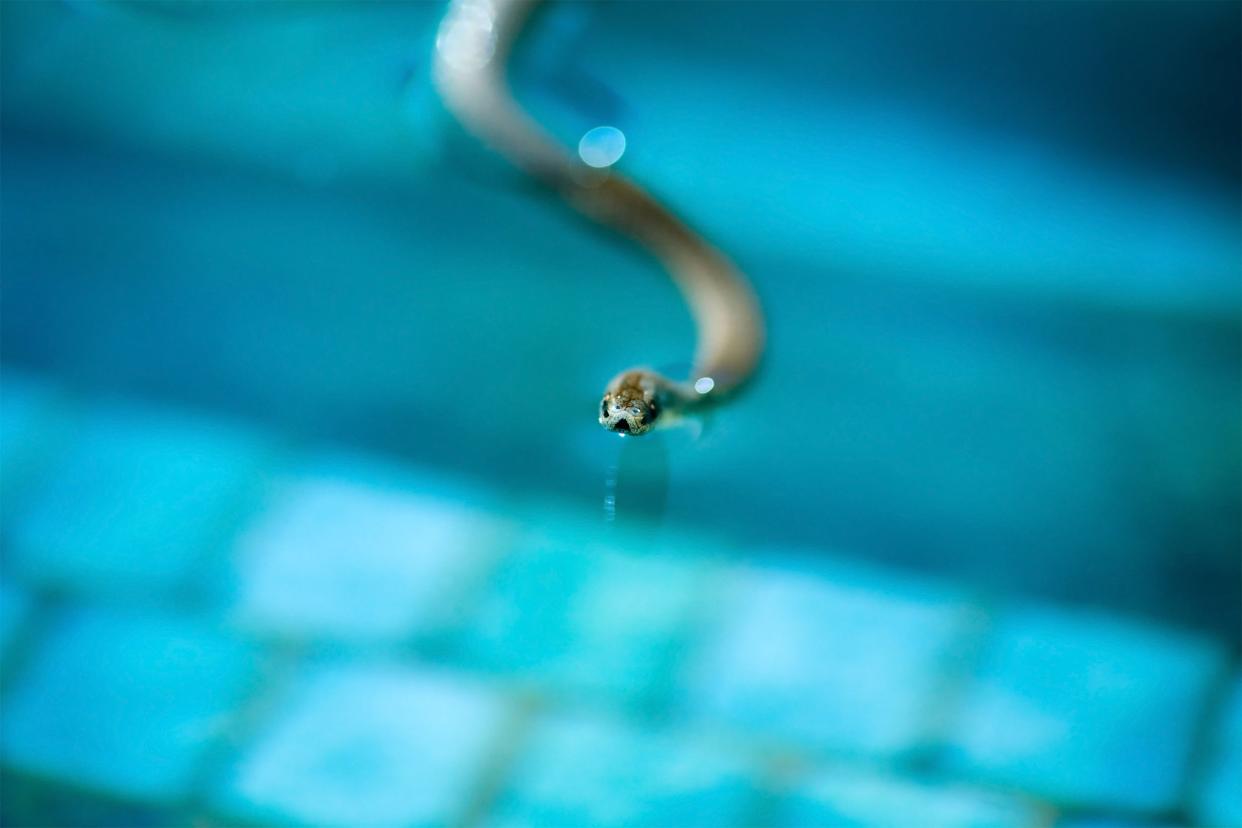
Pools Are a Critter Haven
If you're not a wildlife lover, be forewarned: Animals love pools. Some of the most common visitors include frogs, snakes, ducks, and geese; you may even find alligators if you live down south. The CDC warns pool owners to keep a close watch for raccoons, which can harbor a parasite that can cause a serious neurological illness in humans.
Related: Cheap, Natural Ways to Rid Your Home of Pests

The Electricity Bill May Soar ...
Pool pumps use more electricity than any household appliance, and can easily add up to more than $300 to an electricity bill in a year, according to Oracle data. A variable-speed pump can cut down on energy costs, but might come at double the upfront cost of a single-speed pump.
Related: Earth-Friendly Habits That Can Save Money
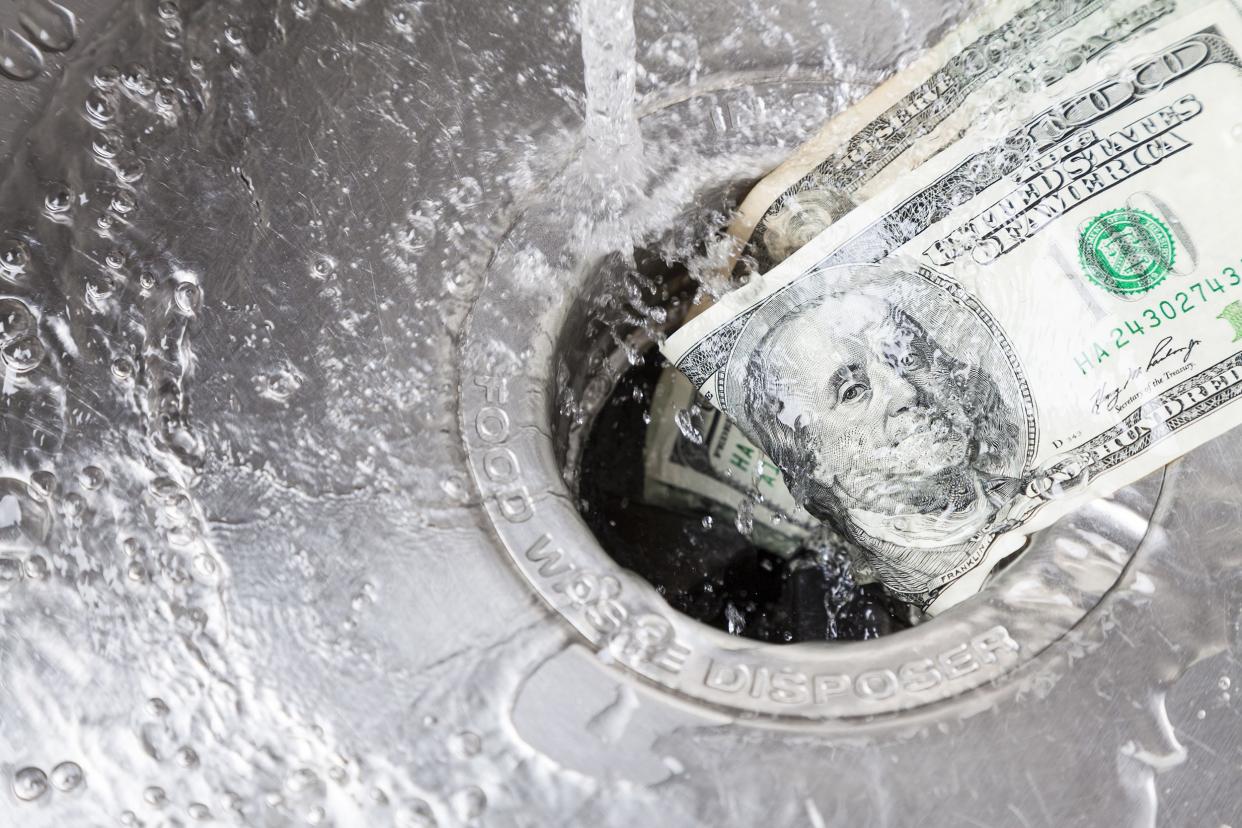
... And the Water Bill, Too
Water is relatively cheap — it's combined water and sewer bills that can be the real killer when filling up or topping off a pool. The bill could more than double for the month you fill a pool — depending on the size, you may need 15,000 or more gallons on top of the 12,000 a family may normally use in a month. That could mean as little as an extra $65 in some cities, or well over $360 in others, based on rates last tracked in 2019 by Circle of Blue. (You can be confident rates are even higher now.)
Related: Tips to Avoid Utility Bill Scams
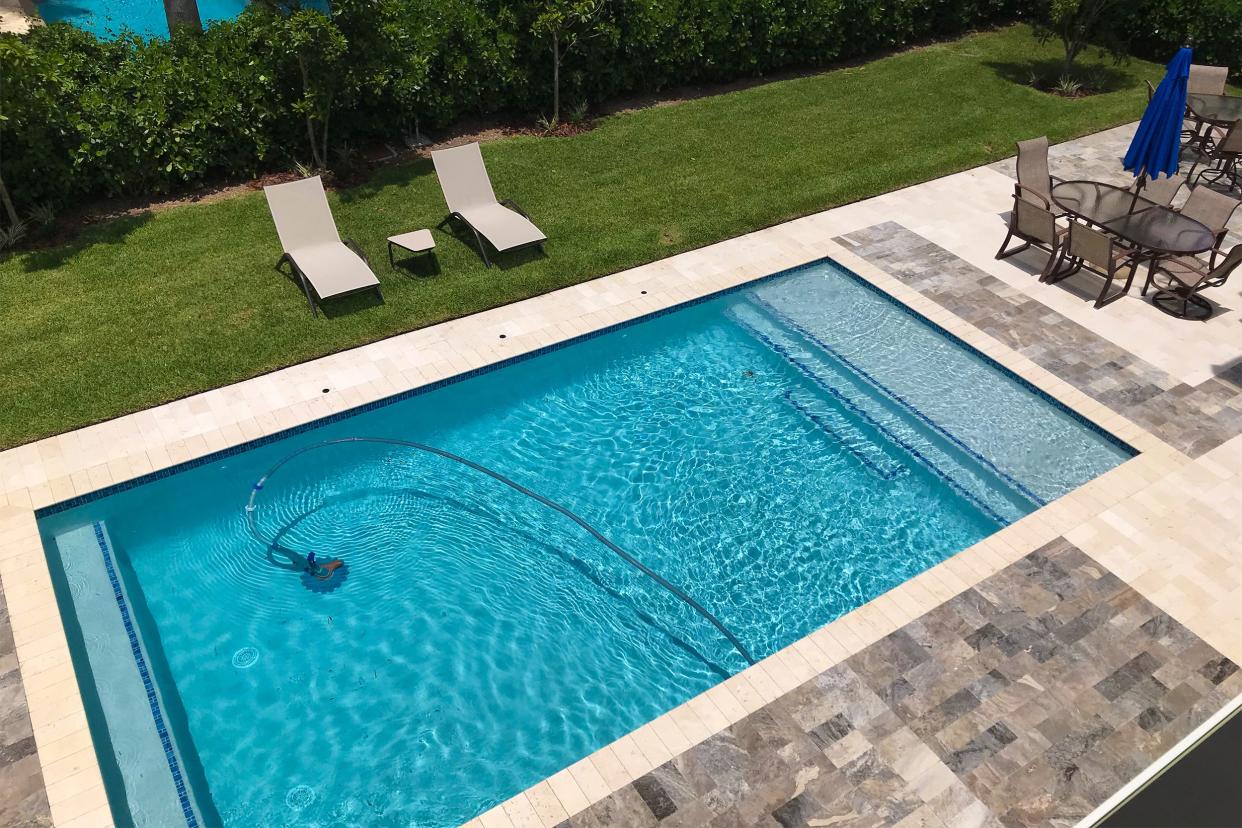
It's Not Exactly 'Green'
If you're concerned about living an eco-friendly life, getting a pool probably isn't the best move. Increased electricity and water use not only affect a utility bill, but the environment, too. Researchers have found that environmental impacts are much greater in warmer, more arid climates where pools are likely to get greater use.
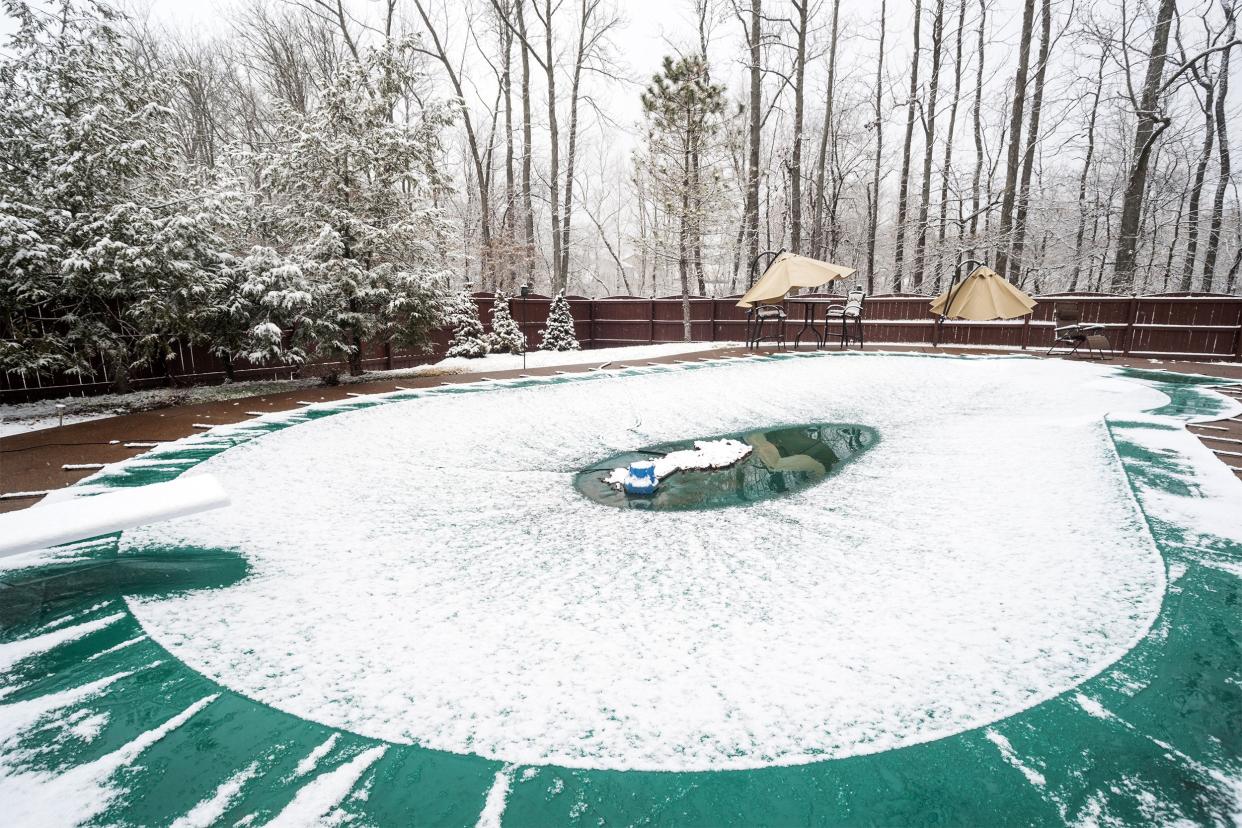
It Can't Be Used Year-Round
Experts recommend opening a backyard pool when the temperature makes it consistently past 70 each day. For much of the country, that means it's only reliably warm enough to enjoy a pool for about five months out of the year — typically May through September. For some northern parts, the swimming season is really only three months long.
Related: The Coldest and Warmest Cities in Every State
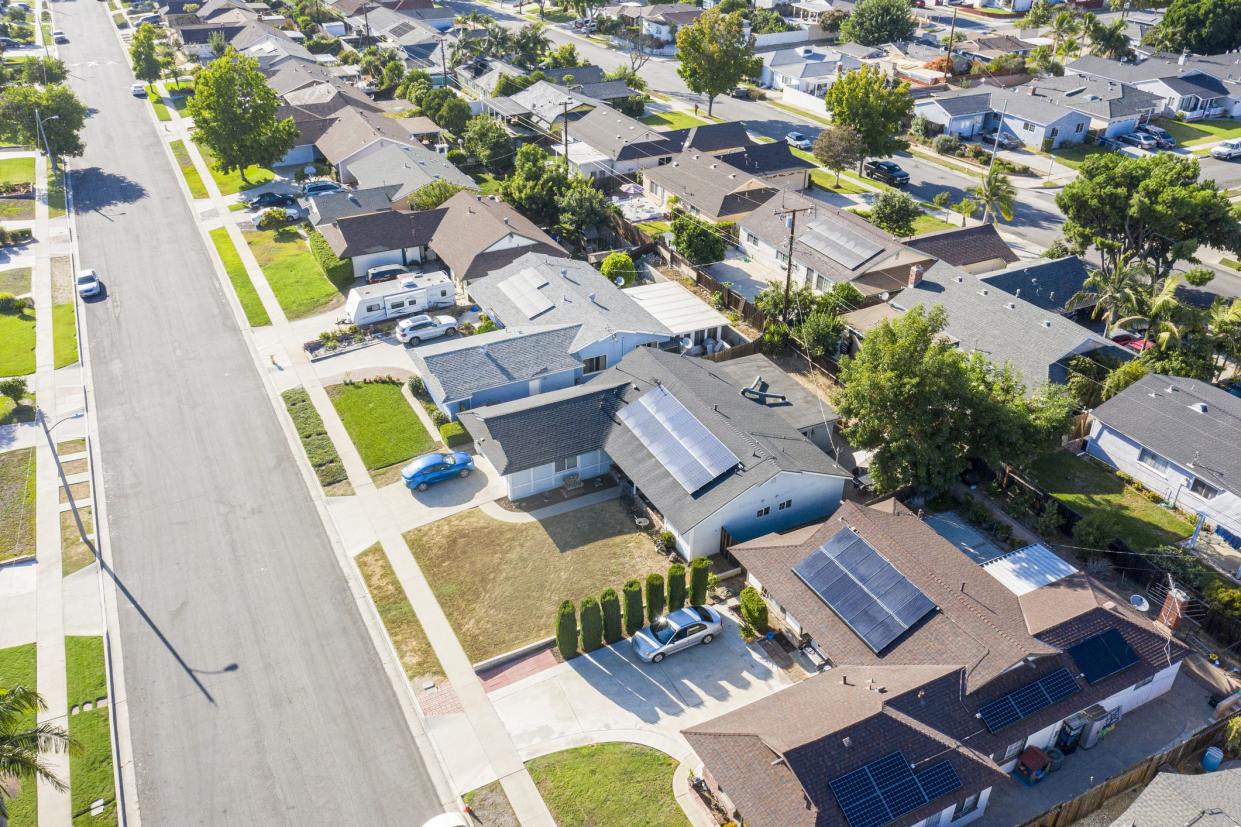
It May Not Even Be Allowed
Do you live in a neighborhood with a homeowners association? Better check the rules before giving in to pool dreams. Above-ground pools are commonly prohibited, and associations may still restrict homeowners on the kinds of in-ground pools they can install.
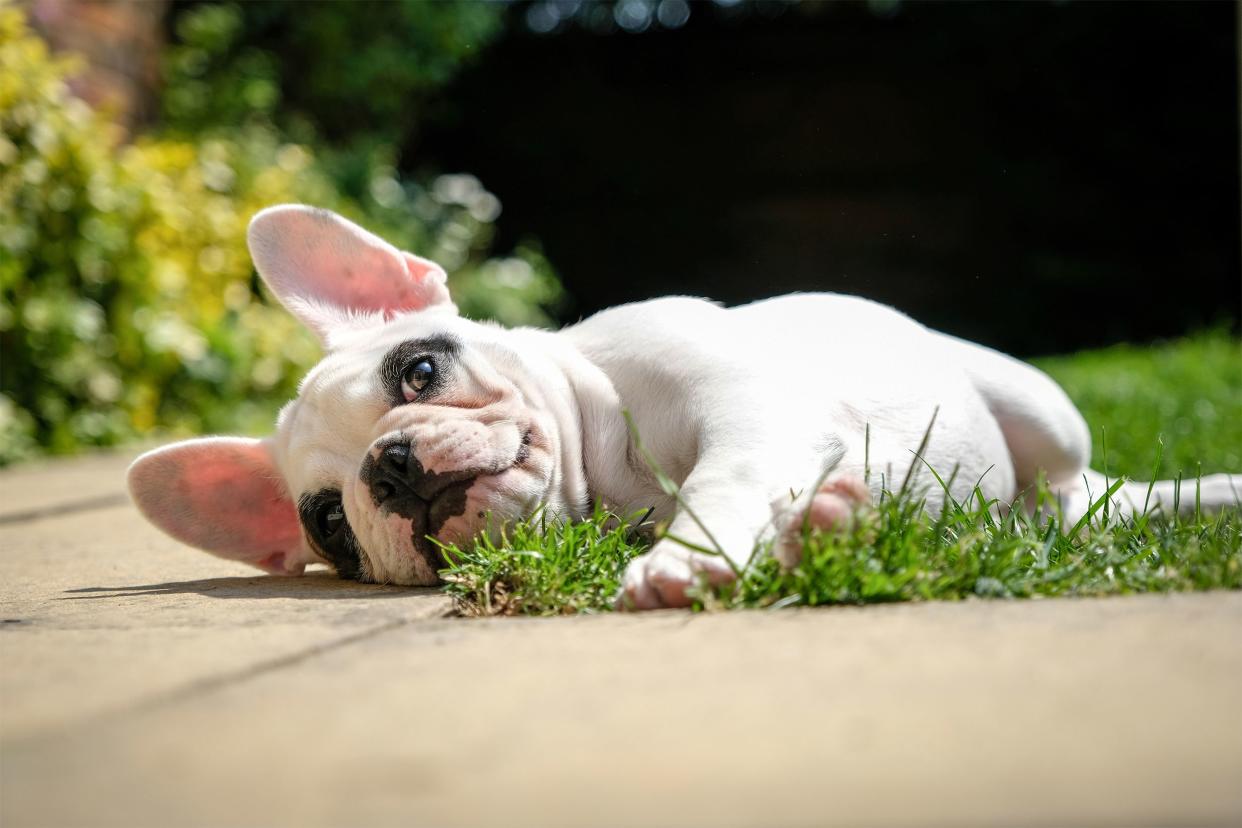
It Eats Up Valuable Yard Space
Do you need grass for pets or kids to romp? Consider whether you'll have enough yard space for anything else once a pool is installed. In-ground pools begin around 10 by 20 feet, while the smallest above-ground pools are about 12 feet round. You'll also need to account for patio space or local rules requiring pools be a certain distance from homes and property lines.

Pools Can Make You Sick
A backyard pool may seem safer than a public pool when it comes to spreading illnesses, but a private paradise isn't immune from germs. According to the CDC, diarrhea is the most common recreational water illness; rashes, ear infections, and respiratory issues are also common. Properly chlorinated water can take care of most germs in an hour, but the CDC says others can survive for days.
Related: The Biggest Health Risk of Public Pools (It Isn't Drowning or COVID-19)
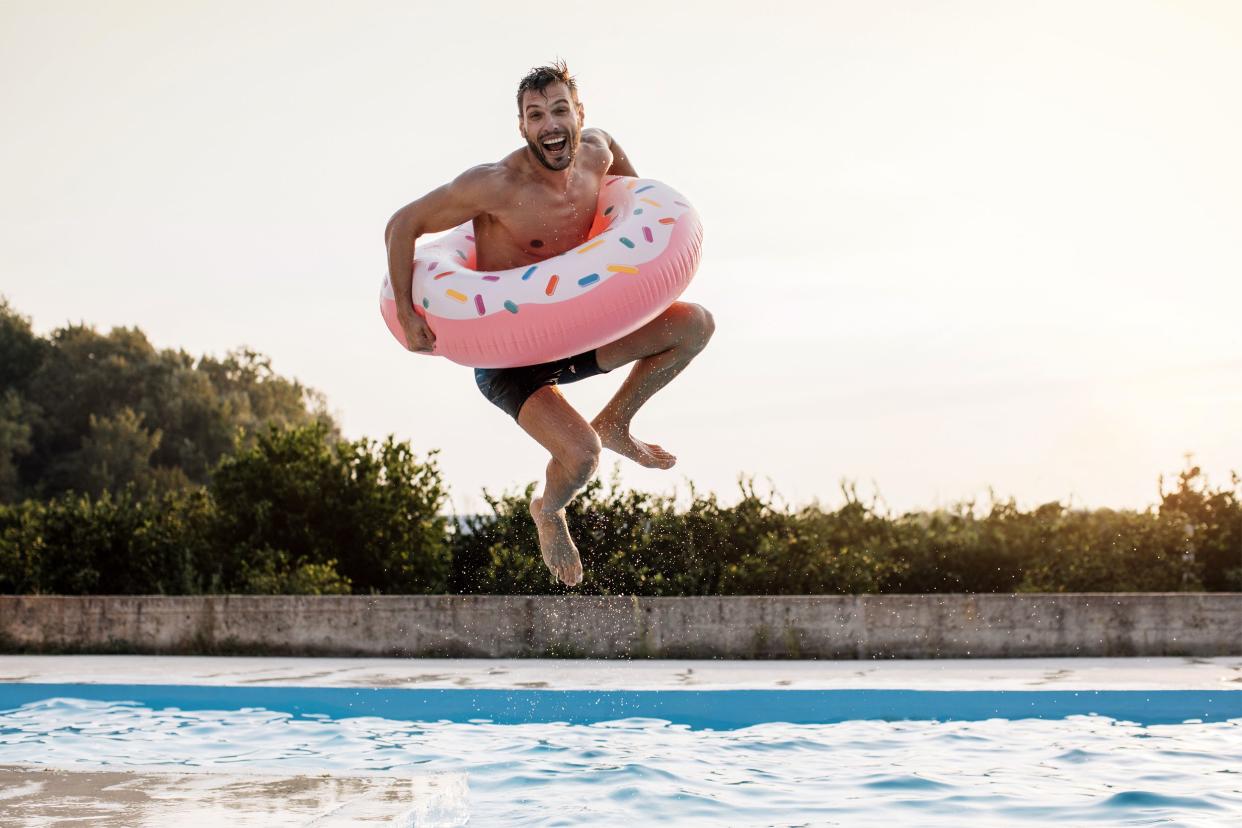
You May Attract Unwanted Guests
A lovely pool can make a home suddenly attractive as a new hangout. While a planned pool party could be a great time, a pool may also mean family members, friends, and neighbors turning up to cool off without an invitation. It's best to set ground rules to minimize these awkward situations.
This article was originally published on Cheapism

